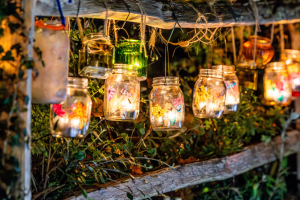Liz Jones, Policy Director at the National Care Forum, explores how not-for-profit providers embed cultural and religious needs into everyday care. Drawing on examples from their members, she highlights why faith, spirituality, and values-led practice are central to delivering truly person-centred support.
Values-led delivery of care and a deep understanding of community need are the bedrock of the not-for-profit provider ethos. Recognising and meeting the cultural and religious needs of the people we support is just one area in which not-for-profit care providers exemplify this community responsiveness and person-centred approach.
The National Care Forum (NCF), membership is rich with examples of this values-led community approach and expertise within their care and support portfolio. Our members come in all shapes and sizes and offer a very diverse range of care and support services. As not-for-profit organisations, they place a strong emphasis on the long-term sustainability of their offer in their communities. This is partly because many of them have a strong heritage, with deep roots in the communities they serve as a result of their origins and history. Their philosophy of responding to community need as they see it and as it changes, means that they have a strong focus on person-centred care and support; in response, many are able to offer specialist provision for people with specific needs such as those with strong faith traditions.
A strong part of our offering to members are our Communities of Practice. These regular member meetings, which take place either online or in person at a members’ service, are very effective means of communication, networking and policy development. Members use these meetings as opportunities pose questions and get real time responses to other members. The Faith and Spirituality Network meetings provide a dedicated space for NCF members with a faith dimension in their organisation, heritage, and approach. These meetings offer a safe and supportive environment to deeply consider the role of spirituality in practice. This network is designed to facilitate the sharing of experiences and ideas, explore common issues, and collaboratively discover solutions.
For this article we have given a few of our members the opportunity to explain in their own words how their care ensures that the cultural and religious needs of older people are fully embedded in everyday care practice.
Pilgrims’ Friend Society
Creating an accessible Christian environment
At Pilgrims’ Friend Society we recognise that spirituality is at the heart of all human experience. As a Christian provider, we support the spiritual journeys of the many older Christians who make their home with us, each with a deeply felt need to continue on in their faith. Being able to talk openly, hear teaching from the Bible, sing hymns, and pray, brings great comfort to the older people living with us, especially as they may now struggle to get to church. Later life can bring huge challenges, from failing health to the loss of a spouse, and so we ensure those living with us receive spiritual encouragement as part of a loving Christian community.
One older person for whom living in a Christian environment means so much is Marian. Due to ill-health, Marian struggles to leave her room. The staff, volunteers, church friends and fellow residents who drop by make a world of difference, whether it’s to read the Bible and pray, share a cup of tea and a chat, or help her take part in the craft activities she loves.
Kisharon Langdon
Kisharon Langdon provide supported living and assistance to people who have learning disabilities and autistic people in the Jewish community. Our care is focused on respecting and embedding cultural and religious needs and this is central to the care we provide. We take a person-centred approach, ensuring that each individual’s religious practices and traditions are recognised and supported in daily life. From Friday night Shabbat dinners to inclusive festival activities such as baking, art, and music, we create opportunities for the people we support to celebrate their identity and participate in meaningful community experiences.
Accessibility is at the heart of what we do. We offer a Siddur- a prayer book- which features clear print with simplified translations and accessible transliteration of core Shabbat prayers with a set of graphic icons to help those with communication challenges. Many of our activities are supported by ‘easy read’ translations, meaning everyone can join in with activities and prayers.
Staff training is vital in building our culture of respect and understanding. Our teams receive specialist learning on the Jewish way of life, equipping them with the knowledge and sensitivity to support individuals in ways that honour their personal choices and their Judaism. Each year, staff attend a Jewish Life Exhibition run by people we support, which showcases the meaning behind Jewish religious and cultural practices.
By listening, collaborating, and responding to individual needs, Kisharon Langdon strengthens inclusive practice and ensures that everyone we support can live a full life where their culture and beliefs are truly valued.
Methodist Homes (MHA) – inclusive, multi-faith care for older people
Here at Methodist Homes (MHA), we truly understand and value the cultural and religious needs of our residents and colleagues.
Our chaplaincy service, available in all our care homes, is one of the things that makes MHA special. With around 100 chaplains, our team is key to nurturing the mind, body and spirit of everyone we serve, regardless of beliefs or backgrounds. They provide pastoral and spiritual care, lead worship and reflection, and help create spaces where people feel heard and valued.
MHA’s homes regularly mark religious and cultural festivals, whether celebrating Eid, Easter, Diwali or Hanukkah. These celebrations offer everyone the opportunity not only to share in celebration but also to grow in understanding of other religions and cultures, and how important they are to people’s lives.
We also have a faith and belief colleague network which creates resources and events. Recently they developed a guide for Bandi Chhor, a Sikh festival, giving colleagues simple ideas for inclusive celebrations residents and colleagues from all backgrounds can join.
As has been illustrated by the examples given by the members above, there is an incredibly strong tradition amongst not-for-profit providers to ensure that the faith traditions of the people they support is truly central to their offer. This is something that NCF deeply respects and values and is just one of the many elements that set not-for-profit providers aside from other elements of the market. Our members focus on using surplus funds to invest in high quality care and support, invest in workforce terms of pay, terms and conditions and learning and development. They also look to innovate with technology and new models of care – this ambition to find new ways of doing things is another quality that underpins the not-for-profit ethos.
Given the many challenges facing the adult social care and support sector at this time, we remain dedicated to supporting our members and the wider not-for-profit care and support sector. We want it to be enabled to thrive and grow so it can continue to respond to the expanding and increasingly complex level of care and support needs of people across England.







